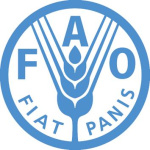- 産業: Agriculture
- Number of terms: 87409
- Number of blossaries: 0
- Company Profile:
Established in October 1945 with the objective of eliminating hunger and improving nutrition and standards of living by increasing agricultural productivity, FAO coordinates the efforts of governments and technical agencies in programs for developing agriculture, forestry, fisheries, and land and ...
Adjective used to describe spherical and undifferentiated cells with primary cell walls, capable of both cell division and differentiation.
Industry:Biotechnology
After each sub-culture, the medium is discarded because it has been depleted of nutrients, dehydrated or accumulated toxic metabolic products.
Industry:Biotechnology
Air temperature at a given time and place; not radiant temperature.
Industry:Biotechnology
All activities associated with the description of AnGR aimed at better knowledge of these resources and their state.
Characterization by a country of its AnGR will incorporate development of necessary descriptors for use; identification of the country's sovereign AnGR; baseline and advanced surveying of these populations, including their enumeration and visual description, their comparative genetic description in one or more production environments, their valuation, and ongoing monitoring of those AnGR at risk.
Industry:Biotechnology
Alleles that produce independent effects when in the heterozygous condition.
Industry:Biotechnology
An <i>E. coli</i> enzyme that removes nucleotides from the 3´-hydroxyl ends of double stranded DNA. a.k.a. exo III; exodeoxyribonuclease III.
Industry:Biotechnology
An abnormal form of a normal cell protein, with no detectable nucleic acid, found in the brain of mammals and believed to be the agent responsible for the class of diseases called spongiform encephalopathies, including scrapie in sheep and bovine spongiform encephalopathy (BSE; mad cow disease) in cattle.
Industry:Biotechnology
An abnormal form of a normal cell protein, with no detectable nucleic acid, found in the brain of mammals and believed to be the agent responsible for the class of diseases called spongiform encephalopathies, including scrapie in sheep and bovine spongiform encephalopathy (BSE; mad cow disease) in cattle.
Industry:Biotechnology
An abnormal increase in stem elongation, accompanied by poor or absent leaf development. Physiological etiolation is caused by a lack of chlorophyll, and is typical of plants growing under low light intensity or in complete darkness. It can also be caused by disease.
Industry:Biotechnology
